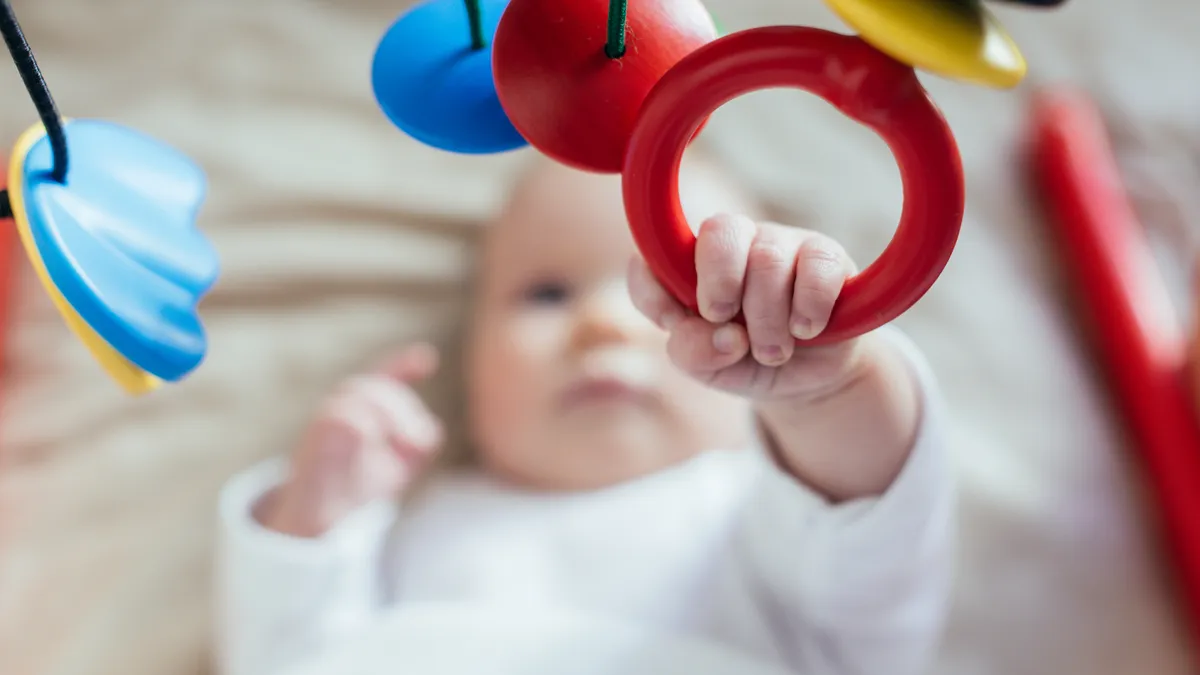- Welcome to Our store Toykiddies

How to Feed Your Newborn
Deciding how to feed your newborn is one of the very first big nutritional decisions you will make for your child. Below are guidelines on breastfeeding and bottle feeding to help you make a decision over what is best for both you and your baby.
Breast or Bottle?
The American Academy of Pediatrics (AAP) recommends exclusive breastfeeding of a baby for 6 months of life, continued breastfeeding combined with solid foods till at least 12 months and then for as long after this age as mutually desired.
Although breastfeeding is beneficial to the baby, not all mothers can or may not desire it. The decision to either breast-feed or bottle feed depends on several factors such as personal choice, lifestyle, and preference among others. In other cases, breastfeeding may not be advisable. You can seek information in your pediatrician if you are either not sure whether you should breast-feed or formula.
You can rest assured that no matter whether you will either opt for breastfeeding or formula feeding, the nutritional and psychological requirements of your baby will be met respectively.
Benefits of Nursing
This is because breastfeeding supplies the baby with the ideal nutrients for their digestive system, and the digestive system prefers breaking down breast milk even though the mother's breast milk can't be equaled by formula-although formula is designed to mimic breast milk.
Breast milk has antibodies to protect the infants from infections like diarrhea and ear infections. It may further reduce risks of diseases such as diabetes, asthma, and allergies. For mothers, breastfeeding helps burn calories and may reduce the risk of breast and ovarian cancers.
There is also the beautiful bonding experience created through skin-to-skin contact that provides mothers with security in nourishing their babies. Further, since breast milk is always available and doesn't need preparation, the feeding time is seamless and very cost-effective.
Limitations of Breastfeeding
Breastfeeding can be very demanding, especially in the first weeks since newborns should be fed at every 2-3 hours. It is tiring, but at some point, babies will need fewer feedings and sleep longer.
Some mothers have to be away from their babies to attend work or have other things that keep them away from their babies. Practically, it is more convenient to bottle-feed a baby, but others can generate enough milk for later use when the mother will not be available to directly give her baby the breast milk.
Some mothers may initially find breastfeeding uncomfortable or overwhelming, but many of these discomforts seem to dissipate with practice. Counseling from health care providers, lactation consultants, or support groups can be quite helpful.
In certain conditions like chemotherapy or HIV exposure for the mother, breastfeeding is contraindicated. If you are being given medications or have health-related issues, you should consult your doctor regarding breastfeeding.
Benefits of Bottle-Feeding
Commercial infant formula, while not as nutritious as breast milk, is still a nutritious food for infants that will allow parents much more flexibility with feeding times.
Because formula is digested more slowly, formula-fed babies may feed less frequently.
Formula feeding also enables fathers and other family members to help feed the baby, which helps improve family bonding. Outside the home, some mothers may find it hard to breastfeed, so this is a benefit of using formula too.
Feeding formula also requires planning and organization to ensure that you have enough formula and clean bottles available. Store formulas can be expensive, and preparing bottles is not a hassle-free task – in the middle of the night and away from home.
While preparing the formula, strictly follow the manufacturer's guidelines. Formula must be discarded if it has been left at room temperature for more than one hour or was left in the bottle after feeding.
How Often Does a Newborn Baby Feed?
A newborn baby feeds 8 to 12 times in a day. Initially, they should be breastfed for about 10-15 minutes on each side. Bottle-fed babies typically drink 2-3 ounces of formula every 2-4 hours. A newborn should not be allowed to go more than 4-5 hours without feeding.
Refusal for food are head bobbing motions, opening and sucking, or crying. As the baby grows, they will take more at each feeding with greater intervals between feedings.
Is My Newborn Getting Enough to Eat?
Your newborn is probably getting enough if they seem satisfied after a feeding. Other signs that your newborn is probably getting enough to eat are 6-8 wet diapers per day, daily bowel movements, and steady weight gain.
If the baby appears fussing, is not easily comforted after feeding, or has fewer wet diapers, ask the pediatrician for reassurance that the newborn is getting enough to eat.
Nutritional Supplements for Newborns
Human babies get their vitamins and iron, for example, directly through breast milk, although this is supplemented with vitamin D in the first days of life if a baby is breastfed. If a baby is formula-fed, vitamin D may also be required if they consume less than 1 liter of formula per day.
Talk to your pediatrician about any questions you have about feeding or supplements.